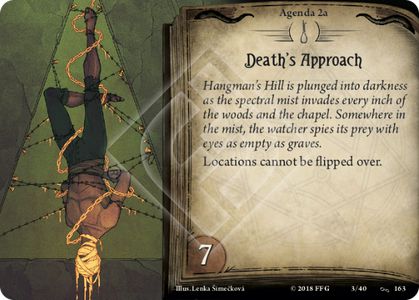
EDIT: Grammar
I foresee Ethereal Form (and it's counterpart Read the Signs) becoming a staple among mystics, mostly due to innate attributes. All classes have an best stat, but there are also rather well-defined second-best stats and worst stats, as tabled below, calculated through averages of investigators' attributes within each class:
: Best Stat: , Second-Best Stat: , Worst Stat:
: Best Stat: , Second-Best Stat: , Worst Stat:
: Best Stat: , Second-Best Stat: , Worst Stat:
: Best Stat: , Second-Best Stat: and tied, Worst Stat:
: Best Stat: , Second-Best Stat: , Worst Stat:
Mystic's in particular is quite special due to every mystic except one having exactly 3 in that stat. Combined with no below 4 (expect Diana, but only technically), means that Ethereal Form will be testing at 7 minimum in all but Jim's hand (same for Read the Signs in all but Agnes's and Akachi's hand). It is also a spell, meaning the staple (and only, until Scroll of Prophecies came out) lvl0 mystic card draw Arcane Initiate will readily draw it.
Ethereal Form is of interest to Agnes Baker thanks to Heirloom of Hyperborea, of particularly interest to Marie Lambeau, thank to her innate ability, and of ESPECIALLY particular interest to Sefina Rousseau, thanks to her entire event-heavy play-style and whopping 8 test base for the card. Other non-mystics who can take mystic card and test Ethereal Form at 6 or above by default include Patrice Hathaway, Mandy Thompson, Lola Hayes, and, strangely enough, every Dunwich Legacy character.
That's all before we even get to what it does. It's closest comparison would be lvl0 Survival Instinct: same evade one, disengage all effect, and similar prevent re-engagement effect. It even has the same downside of possible screwing over fellow investigators at your location. The main difference is a 2 cost difference, a boost of 3 (on average) instead of 1 to the skill test, and the persistent, double-edged sword effect until round end. Your mileage may vary on the usefulness of a Survival Instinctesque card, but it's consistency is unquestionable; testing at 7 makes its effect a likely prospect, even on hard difficulty.



